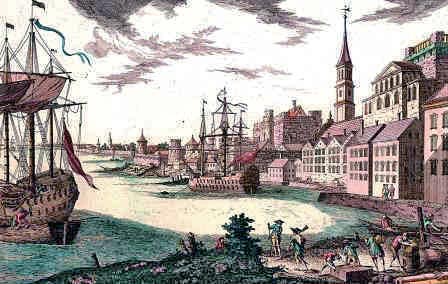The Boston Port Act was passed on March 30, 1774, by the British Parliament as a direct response to the Boston Tea Party. This act closed down the port of Boston until the East India Company could be reimbursed for their losses. The British Parliament hoped to show the colonists that they had control over them. Unfortunately, it did not have the desired effect.

This act punished the citizens of Massachusetts Bay Colony as well as the citizens of Boston. Since the settlers in all of Massachusetts were supplied by the Boston port, the colonists were without supplies. This led to the other thirteen colonies giving aid to the good people of Massachusetts, which resulted in unifying the colonies. This was not the original intent of the British.
This act also cost the British loyalist support within the colonies. Many of the moderate loyalists in Boston did not agree with the harshness of Parliament. This resulted in many of them questioning their loyalties to the British Crown. By the time all of the Intolerable Acts had been passed, the British had lost quite a bit of loyalist support in Boston, although many still remained.
This act was the first of five acts that would eventually lead to the American Revolutionary War.
